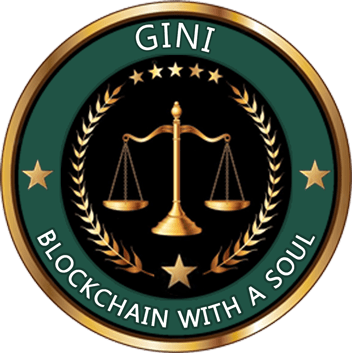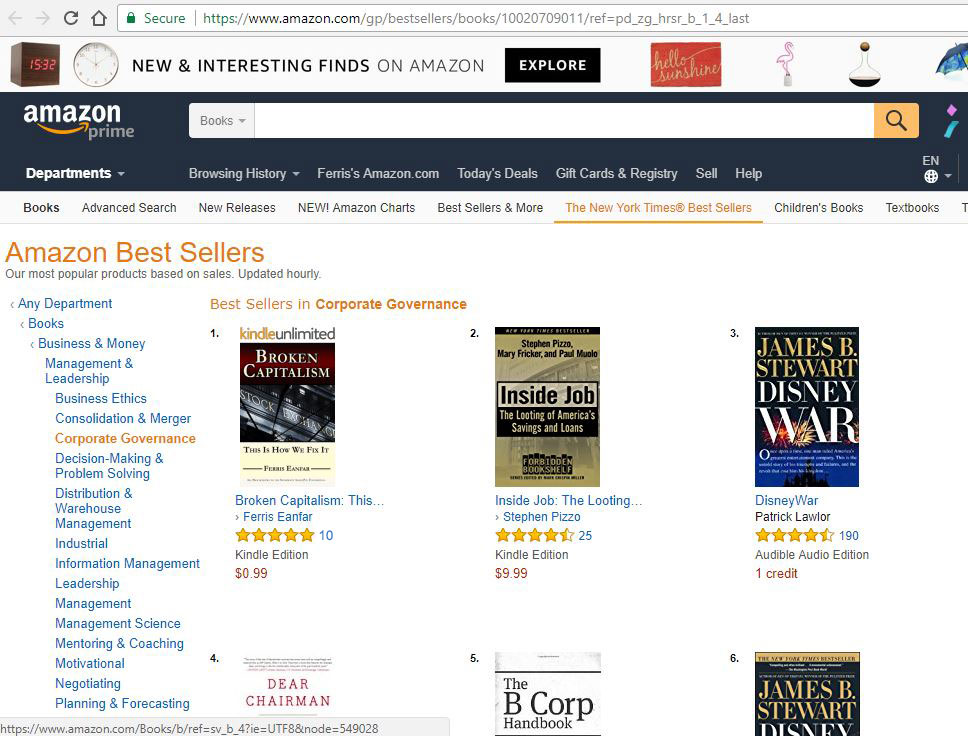
The “War on Drugs” Begins. In 1971, U.S. President Nixon declared the “War on Drugs”. He said, “America’s public enemy number one in the United States is drug abuse,” but Nixon’s domestic policy chief, John Ehrlichman, said in 1994 before he died:
The Nixon campaign in 1968, and the Nixon White House after that, had two enemies: the antiwar left and black people. . . . We knew we couldn’t make it illegal to be either against the war or black, but by getting the public to associate the hippies with marijuana and blacks with heroin, and then criminalizing both heavily, we could disrupt those communities. We could arrest their leaders, raid their homes, break up their meetings, and vilify them night after night on the evening news. Did we know we were lying about the drugs? Of course, we did. 1 2
Nixon’s White House Chief of Staff also said:
P [President Nixon] emphasized that you have to face the fact that the whole problem is really the blacks. The key is to devise a system that recognizes this while not appearing to.3
Reagan Amplifies the War. In 1981, President Reagan launched his own “War on Drugs,” including his “Just Say No” campaign. But Reagan conveniently forgot to mention that top U.S. Government officials and the CIA were secretly smuggling drugs into the United States, selling them to America’s urban communities, and using the proceeds to buy weapons and pay mercenaries in Nicaragua to sabotage the Nicaraguan Government. Senior U.S. Government (USG) officials were also using American taxpayer funds to support the corrupt Somoza crime family, which is what enabled that family and the USG to brutally dominate Nicaragua for decades. When the Nicaraguan people tried to rise up and replace the blood-thirsty Somoza family with a democratically elected leader, the USG deliberately sabotaged and destroyed the Nicaraguan economy . . . after it had already manipulated and controlled the economy for decades.4 5 6
The War on Drugs Has Spawned the Largest Prison Population in the World. The tsunami of crack cocaine that flooded the U.S. with the complicity and knowledge of senior USG officials has ripped apart thousands of communities and millions of families in the United States. The USG’s response has been to perpetuate the corrupt War on Drugs and implement draconian anti-drug laws, rather than logically treat the problem as a public health crisis. Amplified by the rising political power of for-profit prison corporations since the early 1980s, the confluence of systemic federal agency corruption and special interest lobbying has resulted in the U.S. having the largest prison population in the world, in both relative and absolute terms.7

Nixon’s Goals Were Achieved. As intended, the tsunami of crack cocaine disproportionately decimated African-American and poor “hippie” communities. The U.S. prison population exploded by 700% between 1970 and 2005 and is still growing today. Of course, there are other complex economic and cultural challenges associated with poverty and crime, but all those challenges are magnified by the blatant sabotage and systemic corruption perpetrated and perpetuated by politicians. That’s why all Americans should be outraged at any government that shamefully and compulsively engages in criminal behavior and the grotesque waste of our national wealth.
The Futility of the War on Drugs. Portugal, Switzerland, Canada (Vancouver), Chile, Brazil, Mexico, Netherlands, Australia, the Czech Republic, Italy, and Germany have all rationally decriminalized marijuana. Predictably, in every case there has been dramatic public cost savings and dramatic improvements in overall public health outcomes. Unlike the U.S. where drug use and death rates have been consistently rising, the rates in those countries that decriminalized marijuana remained relatively constant.8 That suggests drug use correlates with a certain personality type in every population, which will find a way to use drugs regardless of their cost and availability. The chart below confirms what anybody already knows if they’ve studied the history of the Prohibition Era: Criminalizing alcohol, tobacco, drugs or any sin product does nothing to eliminate its use, but criminalization inevitably and dramatically increases their costs to society.

The Global River of Drug Money Fuels Anti-Democracy Operations. A kilogram of gold has a market value of approximately $40,000 (mid-2017); in contrast, a kilogram of heroin has a market value 4.5x higher at approximately $180,000 (mid-2017). The inflated market value of heroin only exists because of the USG’s destructive War on Drugs, which gives violent drug cartels monopoly power over the highly inflated $500 billion-per-year global drug trafficking market.9 This market is also a significant source of illicit cash for the CIA and other government agencies around the world, which tap into the global river of drug money whenever they need an off-book source of funds to pay for their covert anti-democracy operations. This is one of the most significant reasons why the USG has refused to decriminalize drugs.
Drug Criminalization is far More Destructive than Drug Use. Over $1 trillion of wasted American taxpayer funds, gang shootings, murderous drug cartels, deadly overdoses due to uncertain purity/quantity of doses, exploding prison population, infectious diseases from needle-sharing, illicit wars and funding of anti-democratic regimes worldwide, broken families and communities . . . all these problems are directly caused by the criminalization of drugs, not the actual use of drugs. Despite overwhelming evidence that the War on Drugs has actually been a War on Liberty and a total failure in every conceivable dimension of public health and economic policy, why did the first African-American U.S. President continue the same policies as his predecessors? Why does the USG continue to inflict this ill-begotten War on Liberty upon its citizens and allow generations of Americans to rot in prison? Now we’re ready to learn the whole truth.
Unemployment Fuels the Exploding Prison Population. The following chart illustrates the connection between the War on Drugs, the unemployment rate, and the growth of the prison population. In the chart, you can see how the two major campaigns in the War on Drugs were launched immediately after two of the longest economic recessions in modern U.S. history, which correspond to the biggest spikes in the unemployment rate prior to 2008.10

A Mountain of Incarcerated Humanity. Like all leading socioeconomic indicators, the unemployment rate spikes must occur before prison population spikes, i.e., deteriorating economic conditions are a precondition for rising prison populations. This is why the prison population rises after the unemployment spikes. Then, the longer mandatory drug-related prison sentences implemented by the Reagan Administration transformed the prison population spikes into a cumulative mountain of incarcerated humanity.
Political Fear of Unemployment Feeds the Prison Nation. Nothing terrifies politicians more than a rising unemployment rate, which is why they engage in every conceivable kind of propaganda and manipulation to control our perception of the unemployment rate. The economic conditions in the early 1970s put pressure on Nixon to make himself look like a respectable candidate for the 1972 presidential election. He hoped his War on Drugs would distract people from all the economic problems and make him look courageous, fearlessly tackling “public enemy number one,” which the Nixon Administration artificially inflated into an existential monster to scare the American people. Nixon tried to distract Americans from the real enemy: his own corruption, warmongering, and incompetent fiscal and monetary policies.11 12
War on Drugs: Round 2. The early 1980s were also plagued by intense political and economic turmoil. The disinflationary effects of Federal Reserve Chairman Paul Volker’s strict monetary policy, the political fallout and regional instability from the Iranian Revolution, two recessions within two years (the second was the deepest recession since the Great Depression), rapidly rising oil prices (again), high unemployment . . . all these events resulted in terrible public opinion polls for President Reagan between 1980 to 1982, which was expected to hurt the Republicans in the upcoming 1982 midterm elections. What did they do about all these economic problems? Declare another War on Drugs less than a month before the November election!13
Most People Don’t Take Drugs When They’re Happy. What type of population is more likely to take drugs: A jobless and insecure population suffering from systemically hostile economic conditions; or, a population anchored by a strong Middle Class that has enough economic security to achieve a sustainably high quality of life? Despite the deceptive labor statistics propaganda from the USG, the rising drug use in America is directly caused by our country’s deteriorating economic conditions. Every living creature seeks to escape their pain, but Americans would have no need to escape into a drug-induced euphoria if they felt secure and happy.
Why Does the War on Drugs Continue? Many people think racism is the culprit, but that’s not completely true. From Nixon to Trump and every U.S. president in between, this despicable War on Liberty continues because it’s much easier for politicians to criminalize drugs, store unemployed humans of all races in prison cages, and enrich profit-seeking prison corporations than to honestly deal with the ongoing human tragedy caused by their incompetent economic policies.14 It’s easier to destroy urban families and inner-city communities than to admit that neoliberal economic policies actually create more losers than winners. It’s easier to pander to Transnational Cannibals and incentivize them to discard the human labor force in their home country than to fix the structural economic conditions that cause them to discard the labor force in the first place.
Restoring Economic Security and Personal Liberty. Creating the conditions necessary for human security and happiness is the primary reason that Democracy and representative governments exist. In fact, this is the theoretical deal of our constitutional republic: Citizens agree to give up a little bit of freedom by obeying legitimate laws in exchange for a secure and equitable society, but the USG is not upholding its end of the bargain. To the contrary, the War on Drugs is a War on Liberty, which is destroying American Capitalism and Democracy.
Please read Broken Capitalism: This Is How We Fix It to learn about the realistic, politically viable solutions that would stabilize the Middle Class, stop the criminalization of our lives, and restore trust and integrity in our global economy.
Notes:
1 Parenti, Christian. Lockdown America: Police and Prisons in the Age of Crisis. New Edition edition. London; New York: Verso, 2008.
2 Baum, Dan. “Legalize It All.” Harper’s Magazine, April 2016. https://harpers.org/archive/2016/04/legalize-it-all/.
3 Haldeman, H. R., and Stephen E. Ambrose. The Haldeman Diaries: Inside the Nixon White House. New York: G. P. Putnam’s Sons, 1994.
4 Kinzer, Stephen, and Merilee S. Grindle. Blood of Brothers: Life and War in Nicaragua, With New Afterword. 1st edition. Cambridge, Mass.; London, England: Harvard University Press, 2007.
5 See hundreds of facts and references here.
6 See hundreds of facts and references here.
7 Highest to Lowest – Prison Population Total. (2016) by PrisonStudies.org.
8 Katz, Josh. “Drug Deaths in America Are Rising Faster Than Ever.” The New York Times, June 5, 2017, sec. The Upshot.
9 Transnational Crime and the Developing World–Global Financial Integrity. Global Financial Integrity.
10 Beware of the illusion of a steep decline in the unemployment rate starting in 2010.
11 See Nixon’s Televised speech on August 15th, 1971. Virtually every point he makes in that speech is a blatant lie, politically motivated deception, or a half-truth deliberately intended to distract people from the USG’s war crimes in Vietnam, the economic consequences of Vietnam, and his grossly incompetent economic policies.
12 To be fair, Nixon was strategically effective in his relations with China, Saudi Arabia, and his environmental policies. However, he negotiated everything with the Saudis in secret and prevented the American people from knowing the truth about the deal for generations, which undermines democracy in many ways. His Saudi deal is also blocking the truth about 9/11 and many other corrupt aspects of the USG in the Middle East today. (See this heavily redacted, recently declassified 9/11 Commission report. The actual report begins on page five.)
13 Reagan’s administration also fiddled with the tax code (and here), but he did not significantly reduce taxes in the aggregate. He increased the size of the federal government and the USG’s national debt to record levels by feeding the military-industrial complex, which many Kremlin experts said was not necessary because the USSR was already rapidly imploding. He laid the economic and corporate governance foundations for the long-term destruction of the Middle Class in the U.S. and worldwide. And he used a chainsaw on every industry regulation he could touch. The long-term consequences of Reagan’s neoliberal economic policies still haunt the world today. I went to Reagan’s funeral and I was a die-hard Reagan fan when I was younger, but after analyzing the actual consequences of his policies, I’m no longer a fan.
14 Cohen, Michael. “How for-Profit Prisons Have Become the Biggest Lobby No One Is Talking about.” — Washington Post
About Ferris Eanfar
Ferris Eanfar has over 20 years of experience in technical, financial, media, and government intelligence environments. He has written dozens of articles and several books in the fields of Economics, Crypto-Economics, and International Political Economy, including Broken Capitalism: This Is How We Fix It and GINI: Capitalism, Cryptocurrencies & the Battle for Human Rights and the Global Governance Scorecard. Ferris is a cofounder of the Gini Foundation, which builds unique cryptocurrency systems to protect human rights, among other benefits; and the CEO of the AngelPay Foundation, a nonprofit financial services company with a mission to “return wealth and power to the creators of value.” To learn more about Ferris, please visit the About Ferris page.Visit Ferris on:

 Gini Website Coming Soon. We (
Gini Website Coming Soon. We (
